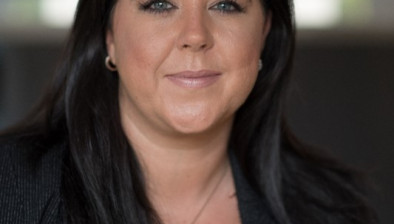Creditfix: More people fear being in debt than losing a loved one
More people (32%) are worried about the effect of COVID-19 on their income than losing a loved one (30%), according to a new report by Creditfix.

The personal insolvency practice commissioned the YouGov report with its sister company in Scotland, Carrington Dean.
Creditfix’s COVID-19 Debt Analysis: Insight and Trends includes the YouGov survey findings as well as an in-depth analysis of more than 22,500 Creditfix clients across the UK.
The report found that while more than 20% of respondents were concerned about losing their job and not being able to find work.
It also found that people aged between 45 and 54 feel more comfortable speaking to a debt advisor (53%) than a family member (41%) with those aged over 55 generally less comfortable speaking about debt.
People aged 25-34 were most worried (37%) about running out of savings or money to buy day-to-day essentials – compared with 30% of 18-24 year-olds and 28% of the 35-44 age group – while the 18-24 age group would be slightly more comfortable (48%) speaking with a debt advisor than those aged 25-34 (44%).
A quarter of respondents are suffering from poor sleep because of their financial situation.
The survey also found that The majority of people (over 26%) would cut back on grocery shopping first to save money with respondents in Scotland rating this highest (32%) closely followed by London (29%) and the East of England (28%). This compares with respondents in the North of England (21%) and Wales (23%).
The Creditfix data, which examined how people were tackling debt and personal insolvency during April and September compared with the same period last year, showed a sharp rise in the number of people on higher incomes seeking debt arrangements which would protect assets such as their homes and cars. There was also a stark 30% increase in clients entering a debt solution with a combined income and assets of £55,500 or more.
Paul Mason, chief executive officer of Creditfix and Carrington Dean’s parent firm, Finbora Group, said: “The uncertainty that COVID-19 has spawned in socio-economic terms presents a real, tangible threat to how people will adapt financially to the yet to be fully realised fallout of the pandemic. This crucially includes their health, welfare and wellbeing.
“There is also a heightened concern about how front-line public and third sector services will manage, with the virus having already taken a heavy toll on resources. This could be stretched to the ultimate limits as they deal with fluctuating levels of new cases and consequently have a knock-on effect on other support services.
“As a result, it is fundamental that there is more cohesion between the private and public sector and that they put joined-up contingency plans in place to ensure people get support as and when they need it. From debt advice to networks of third-party support, the private sector is well positioned to act a buttress for the public sector.”
The YouGov survey found that 28% of women and 22% of men were feeling personal pressure about making ends meet while across Great Britain, many people were worried about debt collectors (20%) or bailiffs (19%).
In London and Wales, 22% said they were concerned about debt collectors or bailiffs (also 22%) – a similar worry for those in the East of England and North of England with 23% and 20% concerned about debt collectors and 21% and 19% about bailiffs respectively.
In Scotland, 18% said credit card re-payments and 18% said debt collectors would add to their pressures while for 20% of respondents in the south of England, it was either mortgage/rent payments (20%) or credit card re-payments (20%).
Reflecting on the YouGov findings, which shows women are more comfortable speaking about their debts and would be more likely to contract a debt advisor about help, Creditfix’s data shows that less women are accessing support compared with the same period in 2019.
This could suggest that while female employment has been affected more by the pandemic, there may be a slight decline in women accessing debt help because of changes to their financial situation such as a loss of income or unstable employment that would rule them out of some debt arrangements.
Creditfix also noted an increase of 20% in the debt owed by self-employed people. In contrast, debt owed by those in full-time employment has dropped by 10.4% and for those in part-time employment by 19.8%. The level of debt owed by self-employed people is likely to have increased due to a difference in the level of government financial support available as the furlough scheme for PAYE workers.
Mr Mason added: “The coming months are likely to be more telling with the end of the furlough scheme and unpredictable restriction measures, combined with winter and temptations to overcompensate at Christmas, among key factors. There are serious concerns about how long the financial uncertainty can be sustained and the repercussions this may have on people and families across the nation.
“People from across all walks of life are affected and in order to help navigate them through these uncharted waters, it is critical that as much information as possible is provided to let them know about the wide range of support and options available. There are also many misconceptions about being in debt, but it need not be as complicated or as overwhelming as some may think.”









